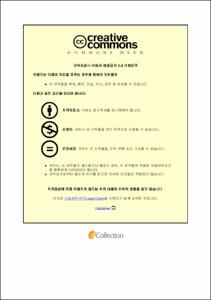궤양성 대장염 환자에서 항TNF제제에 대한 경과 예측에 혈청 알부민 및 C-반응 단백질 조기 변화의 임상적 의의
- Abstract
- Background: The aim of this study was to investigate novel predictors of clinical and endoscopic outcomes in anti-TNF-naïve ulcerative colitis (UC) patients initiating anti-TNF treatment.
Methods: A total of 210 UC patients who started treatment with infliximab or adalimumab from June 2009 and December 2016 in Asan Medical Center, Korea (male 62.4%, median age at diagnosis of UC 37.9 years [interquartile range (IQR), 25.5-48.9], and median duration of follow-up 3.3 years [IQR, 1.9-5.0]) were retrospectively analyzed. Predictors of primary non-response to anti-TNF treatment (PNR) and endoscopic outcomes were identified using logistic regression. Cumulative event-free survival of colectomy and anti-TNF failure were estimated by Kaplan-Meir curves and predictors were investigated using log-rank test and Cox hazard regression.
Results: Forty-one patients (19.5%) showed PNR. Serum albumin week 2/week 0 ratio (W2/W0)≤0.96 (adjusted OR[aOR] 2.76, 95% confidence interval [CI] 1.30-6.10) and C-reactive protein (CRP) W2/W0≥1.35 (aOR 2.39, 95% CI 1.14-5.08) were significant predictors of PNR. Furthermore, serum albumin W2/W0>0.96 significantly predicted mucosal healing (Mayo endoscopic subscore 0-1) (aOR 2.56, 95% CI 1.38-4.85) and endoscopic response at week 8-14 (aOR 2.71, 95% CI 1.49-4.98), respectively. During the entire study period, serum albumin W2/W0≤0.96 significantly predicted risk of colectomy (aHR 2.67, 95% CI 1.00-7.11) and anti-TNF failure (aHR 1.96, 95% CI 1.32-2.92), respectively, whereas CRP W2/W0≥1.35 significantly predicted anti-TNF failure (aHR 1.80, 95% CI 1.05-2.30).
Conclusion: The early change of serum albumin and CRP in the first two weeks after starting anti-TNF treatment significantly predicts PNR. Furthermore, W2/W0 of serum albumin significantly predicts short-term endoscopic outcomes, cumulative colectomy-free survival, and cumulative anti-TNF failure-free survival. Based on these novel markers, anti-TNF treatment could be optimized as early as 2 weeks to improve clinical and endoscopic outcomes.
|목적: 본 연구의 목적은 항TNF제제의 치료 경험이 없는 궤양성 대장염 환자에서 항TNF제제의 투여 후 임상 및 내시경 반응에 대한 새로운 예측인자를 규명하는 것이다.
방법: 본 연구에서는 2009년 6월부터 2016년 12월까지 서울아산병원에서 infliximab 또는 adalimumab 치료를 시작한 궤양성 대장염 환자 210명 (남성 62.4%, 궤양성 대장염 진단 시 나이의 중앙값 37.9세 [사분위수 범위, 25.5-48.9], 추적 기간의 중앙값 3.3년 [사분위수 범위, 1.9-5.0])을 후향적으로 분석하였다. 로지스틱 회귀분석을 통해 항TNF제제에 대한 일차 무반응 및 내시경 결과를 예측하는 인자를 규명하였다. Kaplan-Meier 분석을 통해 대장절제술 무발생 및 항 TNF 제제 실패 무발생 누적생존율을 계산하였고, 로그순위검정법 및 콕스 비례위험 회귀분석 모형을 통해 대장절제술 및 항 TNF 제제 실패의 예측인자를 규명하였다.
결과: 총 41명 (19.5%)이 항TNF제제에 일차 무반응을 보였다. 혈청 알부민2주/0주 비≤0.96 (보정된 교차비 2.76, 95% 신뢰구간 1.30-6.10) 및 C-반응 단백질 2주/0주 비≥1.35 (보정된 교차비 2.39, 95% 신뢰구간 1.14-5.08)가 항TNF제제에 대한 일차 무반응의 의미있는 예측인자였다. 또한, 혈청 알부민2주/0주 비>0.96는 8-14주째 점막치유 (mucosal healing) (Mayo endoscopic subscore 0-1) (보정된 교차비 2.56, 95% 신뢰구간 1.38-4.85) 및 내시경 반응 (보정된 교차비 2.71, 95% 신뢰구간 1.49-4.98)을 의미있게 예측하였다. 혈청 알부민2주/0주 비≤0.96는 대장절제술 (보정된 위험비 2.67, 95% 신뢰구간 1.00-7.11) 및 항TNF제제 실패 (보정된 위험비 1.96, 95% 신뢰구간 1.32-2.92)를 의미있게 예측한 반면, C-반응 단백질 2주/0주 비≥1.35는 항TNF제제 실패 (보정된 위험비 1.80, 95% 신뢰구간 1.05-2.30)만 의미있게 예측하였다.
결론: 항TNF제제 치료 후 혈청 알부민과 C-반응 단백질의 첫 2주간 변화는 항TNF제제에 대한 일차 무반응을 의미있게 예측하였다. 특히, 혈청 알부민 2주/0주 비는 단기 내시경 반응과 대장절제술 무발생 및 항 TNF 제제 실패 무발생 누적생존을 의미있게 예측하였다. 이러한 새로운 예측인자들을 바탕으로, 치료 시작 2주째에 항TNF제제 투여를 최적화함으로써, 임상 및 내시경 반응의 향상에 기여할 수 있을 것이다.
- Issued Date
- 2018
- Awarded Date
- 2018-08
- Type
- Dissertation
- Keyword
- Ulcerative colitis; Infliximab; Adalimumab; albumin; C-reactive protein
- Alternative Author(s)
- Sun-Ho Lee
- Affiliation
- 울산대학교
- Department
- 일반대학원 의학과
- Advisor
- 예병덕
- Degree
- Master
- Publisher
- 울산대학교 일반대학원 의학과
- Language
- eng
- Rights
- 울산대학교 논문은 저작권에 의해 보호받습니다.
- Appears in Collections:
- Medicine > 1. Theses (Master)
- 파일 목록
-
-
Download
 200000107595.pdf
기타 데이터 / 514.7 kB / Adobe PDF
200000107595.pdf
기타 데이터 / 514.7 kB / Adobe PDF
-
Items in Repository are protected by copyright, with all rights reserved, unless otherwise indicated.